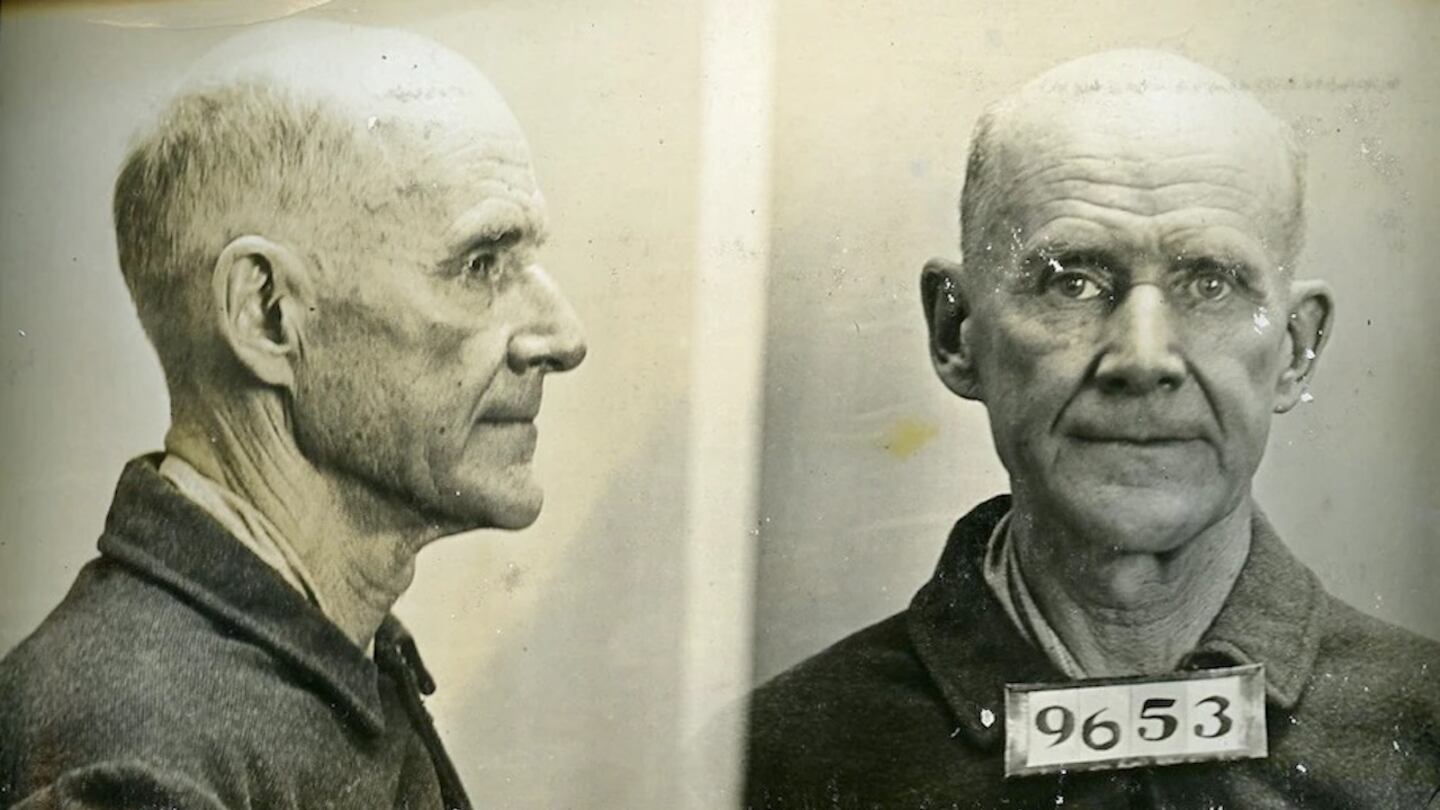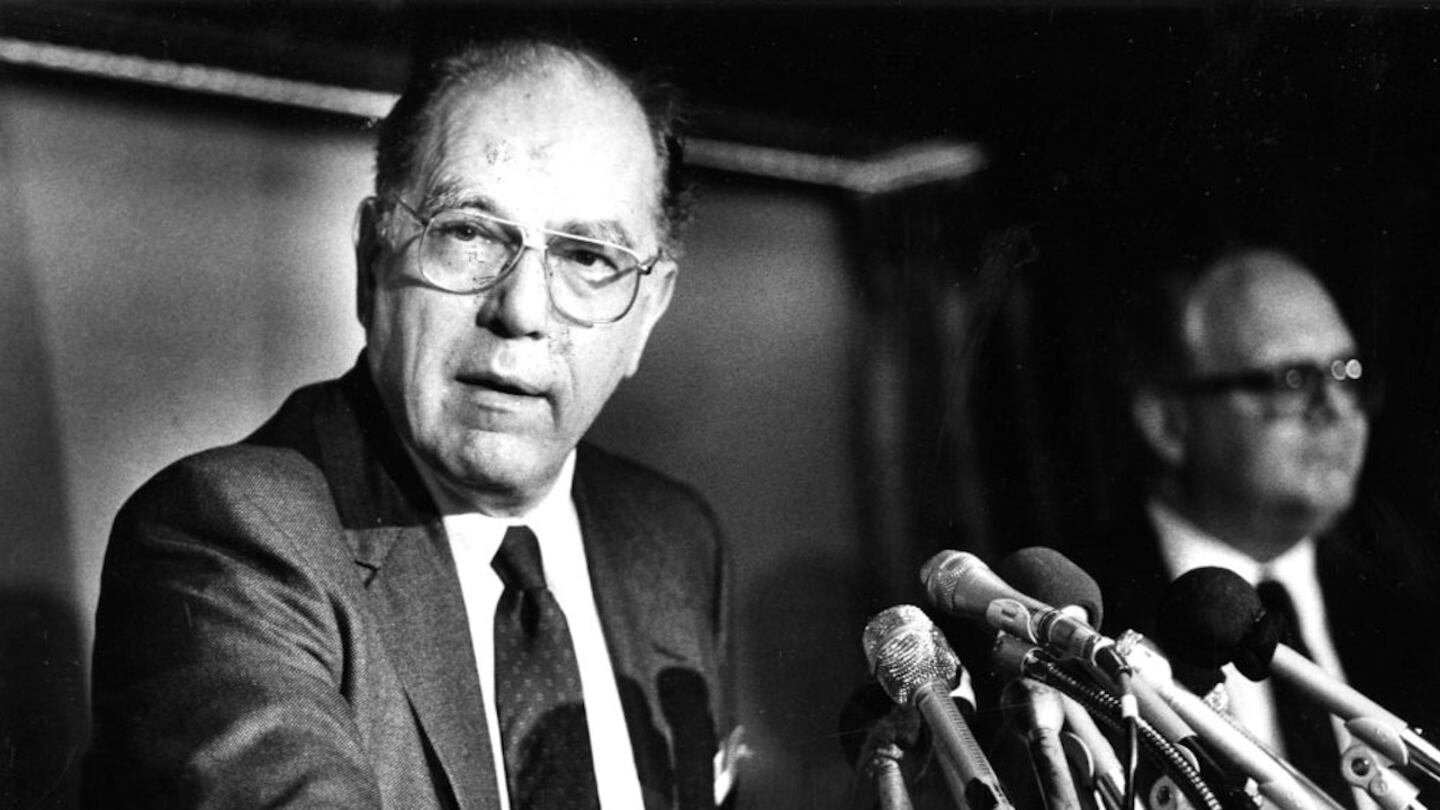When Donald Trump walks into a federal courthouse in Miami on Tuesday for his arraignment on criminal counts related to his handling of classified documents, new ground will be broken.
But while it is unprecedented for a president — or a former president — to be under federal indictment, Donald Trump is not the first presidential candidate to be indicted.
History shows that several candidates were facing charges while running. More than a century ago, one sought the presidency while incarcerated in an Atlanta federal prison. In early 2023, a Netflix docuseries star filed papers to run for president in 2024 yet sits in prison, convicted in a murder-for-hire case.
If Trump is convicted of the charges unsealed on Friday, would he be eligible to serve as president if he wins the 2024 election? The answer is yes, although the logistics might be tricky.
“Obviously the presidency cannot be conducted from jail,” Alexander Bickel, a law scholar and expert on the U.S. Constitution, said in 1973 as the Watergate scandal involving President Richard Nixon boiled over.
According to the National Archives, Article II of the U.S. Constitution does not list the absence of a criminal record as a qualification to run for president. There are only three requirements, outlined in Section 1 — candidates must be natural-born citizens, be at least 35 years old and have resided in the U.S. for 14 years.
“Some people are surprised to learn that there’s no constitutional bar on a felon running for president, but there’s no such bar,” Kate Shaw, a professor at Cardozo School of Law in New York City, told ABC News.
Here are the presidential candidates who were under indictment or incarcerated while running for the White House:
Eugene V. Debs (1920)
Eugene V. Debs, a labor leader, was nominated for president for a fifth time by the Socialist Party on May 13, 1920. He was chosen by acclamation by his party while he was serving a 10-year sentence for violating the Sedition Act of 1918, which was an amendment to the Espionage Act of 1917.
Debs, who ran for president in 1900, 1904, 1908, 1912 and 1920, was convicted after making a July 1918 speech in Canton, Ohio. He criticized the “Junkers of Wall Street” and the government for arresting activists who opposed World War I.
Debs, an Indiana native dubbed the “Lincoln of the Wabash,” was accused of attempting to cause insubordination and refusal of duty in the U.S. military, and of attempted obstruction, recruitment and enlistment.
Federal prosecutor Edwin Wertz had sent a stenographer to the park where Debs made his speech, according to The Washington Post.
“No man, even though four times the candidate of his party for the highest office in the land, can violate the basic law of this land,” Wertz said when he announced the indictment.
However, during the testimony, it became clear that the stenographer, who was a car salesman, had failed to transcribe most of the speech, according to the newspaper.
Nevertheless, a jury in Cleveland found Debs guilty. On Nov. 18, 1918, he was sentenced to three concurrent 10-year sentences and lost his right to vote, the Post reported.
Debs appealed his conviction, and the case, Debs. v. United States, went to the U.S. Supreme Court.
In a unanimous opinion written by Justice Oliver Wendell Holmes on May 10, 1919, the court upheld Debs’ conviction.
Debs, who lost his U.S. citizenship because of his conviction, began serving his sentence on April 13, 1919, entering a penitentiary in Moundsville, West Virginia, according to The Associated Press. He was transferred to the federal penitentiary in Atlanta two months later.
When Debs was nominated in 1920, The Associated Press wrote that “Eugene V. Debs, United States convict number 2,253, was nominated by acclamation for the presidency of the United States at the Socialist party’s national convention today.”
Debs collected 913,693 votes, but no electoral votes, according to the Post.
According to Britannica, Debs was released from prison by a presidential order. President Woodrow Wilson refused to commute his sentence in February 1921, but his successor, Warren G. Harding, ordered Debs released from prison on Dec. 25, 1921, according to newspaper reports at the time.
Debs died in 1926, and his citizenship was restored posthumously by Congress during the summer of 1976.
Lyndon LaRouche (1992)
Lyndon LaRouche, a fringe candidate who was called a conspiracy theorist during his lifetime, ran for president eight times as a third-party candidate from 1976 to 2004. He was convicted in Virginia on Dec. 16, 1988, on conspiracy and mail fraud charges stemming from his group’s solicitation of $34 million in loans since 1983, according to The Washington Post.
Other charges included scheming to defraud the Internal Revenue Service and deliberately defaulting on the loan from thousands of his supporters, The New York Times reported. He was sentenced to 15 years in prison and was sent to a federal penitentiary in Minnesota.
LaRouche ran his 1992 campaign for president from his prison cell, CBS News reported. He was released two years later and then entered campaigns for the next three presidential elections, according to the news outlet.
One of LaRouche’s cellmates in Minnesota was Jim Bakker, the Post reported. In his 1997 autobiography, “I Was Wrong,” the disgraced televangelist said that while LaRouche was good-humored, the former activist was also convinced that authorities bugged his cell.
“To say that Lyndon was slightly paranoid would be like saying the Titanic had a bit of a leak,” Bakker wrote.
LaRouche once called Queen Elizabeth II “head of the drug lobby” and Walter Mondale the “agent of influence” of the KGB, according to United Press International. LaRouche also claimed that Jews had secretly founded the Ku Klux Klan and called Native Americans “lower beasts,” the Times reported.
LaRouche died on Feb. 12, 2019. He was 96.
Rick Perry (2016)
Rick Perry, the longest-serving governor in Texas history, announced his candidacy for the 2016 presidential nomination in June 2015. It was the second time that Perry sought the nation’s highest office after a failed attempt in 2012.
At the time of his announcement, Perry was under indictment on felony counts of abusing his power while governor in 2014, when he threatened to veto $7.5 million in state funds for the public integrity unit of the Travis County District Attorney’s Office, The Texas Tribune reported.
At issue was Perry’s threat to withhold funding unless Travis County District Attorney Rosemary Lehmberg, who was arrested and pleaded guilty to driving while intoxicated, resigned her position, USA Today reported.
Perry labeled the indictments a “political witch hunt,” according to the newspaper.
He would be cleared of all charges in February 2016 by the Texas Court of Appeals, according to the Tribune. But it was too late to save his candidacy. Perry withdrew from the presidential race in September 2015, conceding the indictment brought unwanted attention to his campaign effort.
“Obviously this indictment — as it would anybody — had a negative effect on our candidacy,” Perry said at a news conference after he was cleared, according to The Texas Tribune.
In 2012, Perry’s run for the nomination was filled with mistakes that became the butt of jokes, The New York Times reported. During a nationally televised debate, he said, “Oops” after he failed to recall the name of one of three federal agencies he would eliminate if he were elected president, according to the newspaper.
Perry was fifth in the 2012 Iowa caucuses and quit a few days before the South Carolina primary. He endorsed former House Speaker Newt Gingrich, who lost to eventual nominee Mitt Romney.
“It was the weakest Republican field in history, and they kicked my butt,” Perry joked at the 2012 Gridiron Club dinner, according to USA Today.
After serving as governor of Texas, Perry was Trump’s Secretary of Energy from 2017 to 2019.
Joe Exotic (2024)
You read that right. Joseph Allen Maldonado-Passage, known as “Joe Exotic” from the Netflix docuseries “Tiger King: Murder, Mayhem and Madness,” announced in March 2023 that he would be running for president.
Maldonado-Passage filed to run as a Libertarian.
In 2020, Maldonado-Passage was found guilty of several charges related to a murder-for-hire plot against Carole Baskin, an animal welfare activist and wildlife sanctuary owner, Rolling Stone reported. Maldonado was also convicted of several violations of the Endangered Species Act. The former owner of the Greater Wynnewood Exotic Animal Park in Oklahoma was sentenced to 22 years in prison.
Prosecutors said that Maldonado-Passage, during a meeting that was recorded in 2017, offered $10,000 to an undercover FBI agent to kill Baskin.
He allegedly told the agent, “Just like follow her into a mall parking lot and cap her and drive off,” according to The Associated Press.
In January 2022, Maldonado-Passage’s sentence was shortened to 21 years, according to the news organization.
“Yes, I know I am in Federal Prison and you might think this is a joke but it’s not,” Maldonado-Passage, 60, wrote on his campaign website. “It is my Constitutional right to do this even from here.”
2023 Cox Media Group












